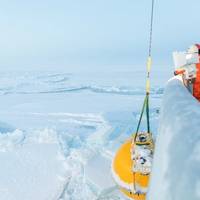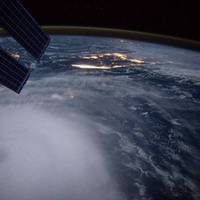The Value of Friends in “High-Latitude” Places

Who do you call when you need a job done on short notice, in total darkness, under 100-percent ice cover, thousands of meters at the bottom of the sea? In the case of the U.S. Office of Naval Research (ONR), you call your friends in Norway.That is exactly what the Chief of Naval Research Rear Admiral Lorin C. Selby did when he enlisted the help of the Norwegian Coast Guard icebreaker and offshore patrol vessel, the CGV Svalbard, to retrieve oceanographic moorings containing irreplaceable data.
El Faro Investigators Call for Better Weather Forecasting

New recommendations coming out of the investigation into the 2015 sinking of U.S. cargo ship El Faro call for efforts to improve the weather information available to mariners. All 33 crew on board died when the 790-foot El Faro sank close to the eye of Hurricane Joaquin near the Bahamas on October 1, 2015, two days after leaving Jacksonville, Fla. en route to Puerto Rico. Now, as part of its ongoing investigation into the incident, the National Transportation Safety Board (NTSB)…
U.S. Navy Pursues Better Weather Forecasting
Navy Researchers Seek to Improve Weather Prediction for Global Operations. With the Atlantic hurricane season officially beginning this month, the Office of Naval Research (ONR) is pursuing a number of projects to help Navy forecasters and meteorologists around the world predict storms better. ONR's efforts in funding ocean research are yielding enhanced weather and ocean prediction models-highlighted in a new video-that help Navy leaders understand how to route ships around the globe to avoid storms, reduce fuel consumption, avoid Arctic ice flows and promote safety at sea. "Weather is one of the most significant factors affecting naval operations at sea," said Chief of Naval Research Rear Adm. Matthew Klunder.





